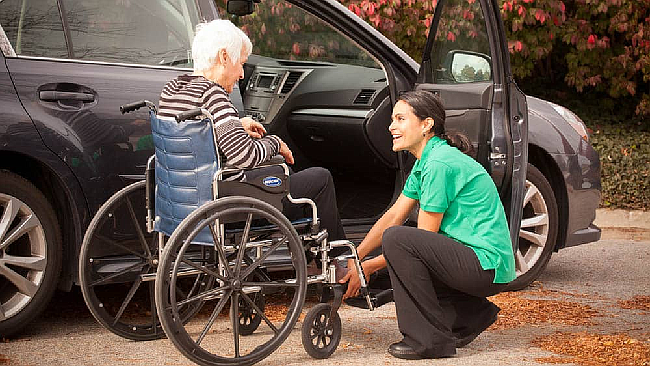After a Hospital Stay: How Older Adults Can Prep for a Smooth Recovery at Home
April 27, 2024 at 6:42 a.m.
This article is courtesy of rightathome.net
For many older adults, going home after a hospital or rehabilitation stay is a big milestone. It can be not only physically demanding but mentally exhausting, too. This can be especially so when the recovery takes time and you don’t feel as independent as you once were. But with the proper planning and preparation, you can help to ensure a smooth recovery process and reduce the time it takes to feel like yourself again.
Preparing for Home Recovery in Advance
What kind of help will you need, if any? Will you be able to climb stairs, or will you need to change how your home is laid out? And what about transportation to follow-up appointments? These are just some of the things to address ahead of time, so you have the support and assistance for a comfortable and safe recovery at home. Ideally, you should consider these questions before you go into the hospital or rehab center.
Here are some tips for questions to consider asking and things you might want to prepare for:
- Communicate with your health care team. If the hospitalization is planned, much of the information you need to be prepared can be asked ahead of time. Your pre-op appointment is the time to ask about medications that will be needed, follow-up appointments, dietary restrictions, and any specific instructions for managing your condition at home. This discussion should include whether you’ll need physical, occupational, or speech therapy. But if the hospitalization wasn’t planned, your health care providers should explain your post-hospital care plan and needs before discharge.
- Ask family and friends to help. Reach out to family members, friends, or neighbors who can help during your recovery. Asking them to do tasks such as making meals, grocery shopping, and household chores can be a huge help. If that’s not an option, contact your local Right at Home office [or other home-health care providers] to learn how their professional caregivers can help with these and other needs.
- Arrange transportation. Make transportation arrangements for your journey home. You may need help getting in and out of vehicles, so ensure transportation options cater to your needs. You’ll also likely have follow-up appointments or physical therapy sessions to get to, not to mention that arrangements will need to be made so you can get needed medications and groceries.
- Prepare your home. Make any changes to your home that will be needed to accommodate your recovery needs. Clear pathways of clutter, secure rugs to prevent tripping hazards, and consider installing handrails or grab bars in bathrooms and high-traffic areas to reduce the risk of a fall.
- Stock up on essentials. Be sure you have essential supplies, such as medications, wound care materials, and any durable medical equipment prescribed by your health care providers. Having these items readily available will streamline your recovery process and reduce stress.
Getting Help with Household Chores Makes Your Recuperation Easier
Everyone knows how nice it is to have a helping hand. That’s especially true when it comes to recovering at home. Here are the types of help around the house that can be a big relief to someone who’s recuperating:
- Personal care. Depending on your level of mobility and independence, you may need help with personal care activities, such as bathing, dressing, using the toilet, and grooming.
- Meal prep and nutrition. Recovery requires a nutritious diet. Consider meal delivery services and meal kits. If your recovery depends on a specialized diet, ask a friend, family member, or professional caregiver to help.
- Household chores and errands. Tasks such as laundry, cleaning, grocery shopping, and pet care can be physically demanding and may require additional support during recovery.
- Transportation to medical appointments. Follow-up appointments help your health care providers monitor your progress and answer your questions. Arrange transportation to and from appointments if you are unable to drive or navigate public transportation independently.
- Emotional support and companionship. Recovery can be emotionally challenging. Having emotional support and companionship can greatly impact your well-being. Stay connected with loved ones, friends, or support groups who can offer encouragement, companionship, and a listening ear.
Planning Your Post-Hospitalization Recovery Is Essential
Navigating your return home requires careful planning, support, and collaboration with your health care team and loved ones. By preparing in advance and enlisting help for your recovery needs, you’ll benefit from a supportive and nurturing environment that promotes healing, comfort, and peace of mind on the road to recovery.
How Right at Home Can Help
Your local Right at Home office [or other home-health care provider] can help with a wide range of services, including light housekeeping, personal care, and respite care to fill in when your family or friends can’t be there. Use Right at Home's office locator to contact the office nearest you to find out more.
This article is courtesy of Right at Home, an agency that provides in home care and assistance. For additional information, Right at Home provides a downloadable free Adult Caregiving Guide. They also provide a free monthly e-newsletter, Caring Right at Home, for ongoing information, tips, and advice delivered to your inbox.





